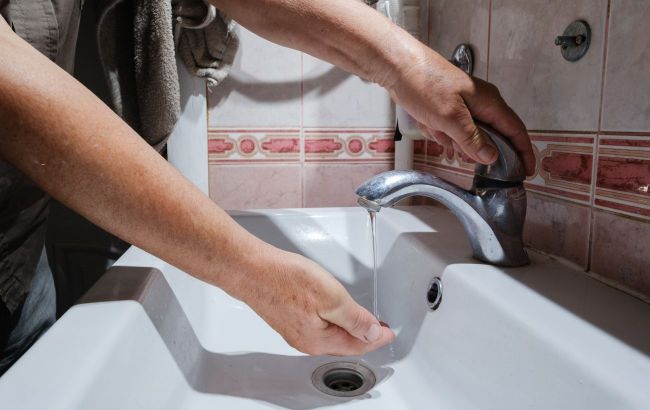Determining tap water hardness: Signs to pay attention to
 Illustrative photo (Vitalii Nosach, RBC-Ukraine)
Illustrative photo (Vitalii Nosach, RBC-Ukraine)
Many high-rise buildings and private houses in cities are connected to the water supply system. One of the main issues with this water is its high hardness.
Below are some tips on how to determine water hardness, citing Teplosfera.
What is hard water?
Hard water contains high levels of minerals, particularly calcium and magnesium, and sometimes iron salts. Normally, the total hardness of drinking water should be 3-4 mmol/dm³. However, the varying amounts of hardness salts in different regions are due to water being a solvent. As it passes through soil layers, it becomes saturated with minerals.
Types of water hardness:
- Permanent hardness (non-carbonate) - the content of magnesium and calcium nitrates, sulfates, chlorides.
- Temporary hardness (carbonate) - the content of calcium and magnesium.
- General hardness - the presence of all compounds characteristic of both permanent and temporary hardness.
What's wrong with tap water?
In Ukrainian homes for instance, seeing a water cooler is not unusual, and water can also be collected from special points or bought in bottles. The reason is that tap water is unpalatable, has an unpleasant smell, and is quite hard. This significantly affects faucets and plumbing.
Besides, it can be harmful to health. Hard water is responsible for limescale buildup in kettles and on plumbing. Limescale indicates the presence of calcium and magnesium salts in the water. Therefore, it's advisable to install filters to purify tap water.
How to determine water hardness
Your tap water is hard if you notice the following signs:
- Regular white buildup in kettles, pots, and other cookware and appliances where water is heated or boiled.
- Residue on glassware after washing.
- White streaks and stains on plumbing fixtures.
- Poor foaming of detergents.
- Gray spots on dishes after washing due to hydrogen sulfide content.
- Rust covering the drum and elements of the washing machine.
Hard water also adversely affects the heating system, causing pipes to scale over time. Even when a boiler or other generator operates at high capacity, heating devices or hot water in the tap remains lukewarm.
Water hardness can be determined at home. There are special test strips available in heating and water purification equipment stores or pet stores (aquarium supplies). The result may not be very accurate. A more precise result can be obtained through water analysis in a specialized laboratory.
Knowing the hardness of your tap water is necessary for selecting a home filtration system. It should be noted that both very hard and very soft water are harmful to the human body.
Why hard water is dangerous
If the calcium and magnesium content exceeds the allowable limit of 3-4 mmol/dm³, the following negative effects may occur over time:
- Dry and flaky skin
- Rashes and comedones on the face
- Dull and coarse hair
- Swelling of extremities
- Problems with the urinary system
Prolonged consumption of hard water can lead to the formation of sand and stones in the kidneys.

